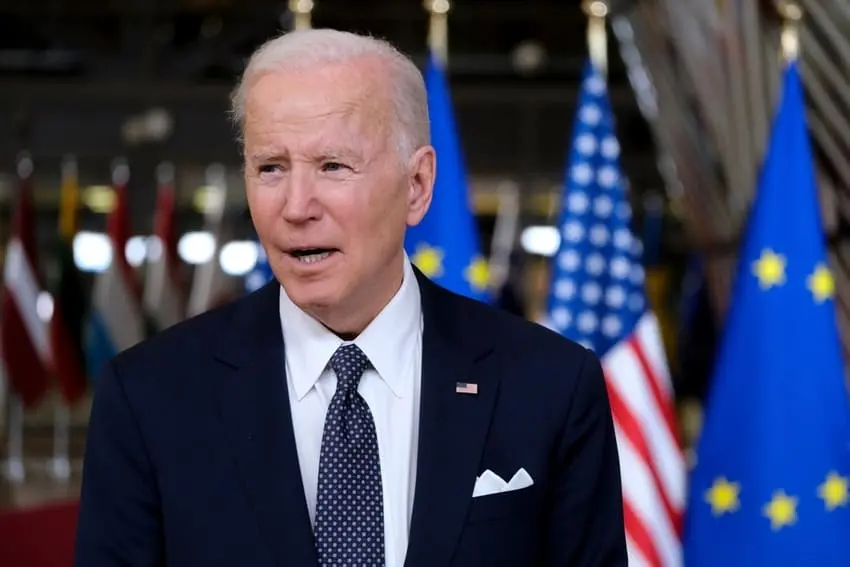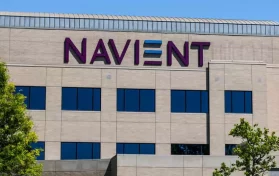
On Tuesday, word came out of Washington that President Joe Biden would be making a significant announcement regarding the forgiveness of student loans. Just after 2:00 p.m. Wednesday, Biden made remarks about his new plan to reduce student loan debt.
Biden’s plan will allow for canceling $10,000 of “certain” student debt for borrowers making less than $125,000 annually as well as $20,000 in forgiveness for those who had both a Pell Grant and a student loan.
Biden’s plans also changes the rate at which payments for student loans are paid past the amount forgiven. Those with undergraduate loans may “cap repayment at five percent” of one’s monthly income.
Biden also announced that he will be extending the payment pause that was placed on repaying student loans during the height of the pandemic. Biden has already extended the repayment date twice in 2022 – once in January, and again in May.
Today, my Administration is meeting my campaign commitment with targeted debt relief to folks from families who need it most.
— President Biden (@POTUS) August 24, 2022
If you received a Pell Grant while in college and make less than $125,000 a year, you are eligible for up to $20,000 in debt reduction.
Biden has received blowback on the decision from not only conservatives, but from members of his own party as well. Senator Patrick Leahy (D-VT) appeared on Fox News Tuesday, where he expressed some doubt about Biden’s plan due to the costs to Americans who had never attended college or had paid their own way without loans. Some financial experts say that the move will wipe out any deficit reduction that was intended by the Inflation Reduction Act; it could also add up to $3 trillion to the nation’s debt.
Republicans cite an increased cost to Americans, particularly those who either paid for college as they attended or who never attended college. Republican National Committee Chair Ronna McDaniel called the student loan forgiveness announcement “Biden’s bailout for the wealthy.”
According to the Penn Wharton Budget Model, Biden’s loan bailout will cost $300 billion.
— Ronna McDaniel (@GOPChairwoman) August 24, 2022
The majority of money will go toward the top 60% of earners.
Mitch McConnell, Senate Minority Leader, said that the plan was particularly written so that it would benefit those “earning six figures.” Many members of the Republican Party claim that Biden is attempting to “buy votes” as he announced his plan just 70 days before the midterm elections.
Democrats' student loan socialism is a slap in the face to working Americans who sacrificed to pay their debt or made different career choices to avoid debt. A wildly unfair redistribution of wealth toward higher-earning people. pic.twitter.com/ntyOafgklh
— Leader McConnell (@LeaderMcConnell) August 24, 2022
However, many Democratic strategists say that Biden may be setting up negative ramifications for midterm candidates. Larry Summers, a former Obama financial advisor, has criticized the move. Further criticism came from Kristin Tate, “The Hill” columnist and fellow at Independent Women’s Voice, who said: “Student loan forgiveness is a massive debt transfer from the working class, including blue collar and minority workers to disproportionately upper income people.” The president of the NAACP made remarks earlier this week that the student loan forgiveness could have a negative impact on minorities as well.
While Biden says that no one making more than $125,000 annually will see student loans forgiven, multiple studies have shown that Biden’s proposed plan to forgiven student loans could benefit high-income earners the most.
A Moneywatch report cited by CBS News found that “more than two-thirds of the debt forgiveness would help people in the top sixty percent of income distribution – or those who earn $82,400 or more per year.”
CBS News Aimee Picchi said the proposed plan “raises questions” about the “fairness” of the program considering that the “median household income sits below $70,000.”
Picchi made her claims based on the Penn Wharton Budget Model, a highly respected method of analyzing economical data.
Forbes is reporting that the complete debt of those owing less than $10,000 in student loans may be wiped out for 32 percent of those 43 million with student loan debt (as long as they fall below the income gap). For approximately 20.5 percent of borrowers will see “at least half” of their student loan debt erased (if they owe between $10K – $20K – those owing between $20K – $40K will see a “significant chunk” of their debt gone). However, at least 38 percent of borrowers will not see any relief as they do not fall inside the income guidelines.
Forbes also agreed with the sentiment that the plan favors the wealthy, citing the Penn Wharton model.





